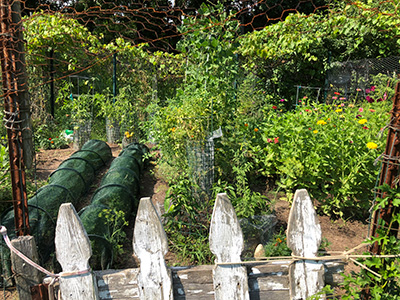Restoration Science Center
Agroecological Restoration
The RSC is working to promote sustainable and novel food systems through restoration. Agriculture is a major impact on global ecosystems and because critical systems of energy, water, soils, land use, and transportation intersect through food systems, it is one of the most strategic points for developing integrative approaches to restoration of cultural-ecological systems.

Syracuse Urban Food Forest Project
ESF Professors Stew Diemont, Matt Potteiger and Don Leopold, in collaboration with Professor Anni Bellows at Syracuse University, are developing an urban food forest project in Syracuse, NY.
A food forest is an agricultural system that mimics a woodland ecosystem by substituting edible trees, shrubs, perennials and annuals for non-edible forest plants. Fruit and nut trees make up the canopy, while berry shrubs, edible perennials and annuals make up the understory. Food forests are relatively low maintenance, resilient, productive agricultural systems, capable of meeting significant portions of the caloric and nutrient needs of large numbers of people on relatively smalls amounts of space. The goal of this project is to develop a climate change resilient urban food forest system that connects neighborhoods and business development to ecosystem services and food security objectives, while reducing runoff from urban areas into local streams. Project partners include the Syracuse City Departments of Parks & Recreation and Business & Community Development, Onondaga Earth Corps, Brady Faith Farms, Baltimore Woods, and the Syracuse-Onondaga Food System Alliance.
